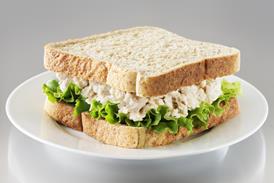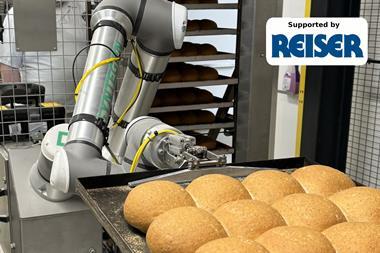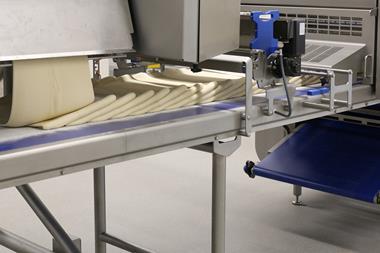Prevention is by far the best approach to hygiene and cleaning in a bakery, but occasionally things go wrong. So, what should a business do when an issue is identified?
Hygiene and cleaning can make or break a bakery; no one wants to buy food from an establishment that has questionable hygiene practices.
But, despite best intentions, mistakes can happen. Potential issues can go unnoticed and, in the worst case scenario, are spotted by a local authority inspector, leading to the issue of a
Hygiene Improvement Notice or a Hygiene Emergency Prohibition Notice.
“Inadequate cleaning will result in the standard food safety risks of microbiological, chemical or allergen contamination of food, as well as the quality risks of spoilage, meat species cross-contact and accidental transfer of animal proteins to vegetarian or vegan products.
“It will also result in a visit from your EHO and, at worst case scenario, prosecution and subsequent damage to your reputation,” explains Catherine Watkinson, global hygiene expert at brushware and hygienic cleaning tools firm Hillbrush.
So, what’s the best course of action to take if a bakery is served a notice? And what are the common pitfalls to look out for?
“The most common hygiene concerns that lead to enforcement action tend to be deep cleaning (where there is a build-up of dirt over a period of time); poor control of stock, allergens or temperature and defective structure or equipment,” says Phil Park, commercial services manager at Stroud District Council. He adds that, in some cases, records suggest checks have been carried out, but problems remain.
“In premises where staff are well-trained and Hazard Analysis And Critical Control Points (HACCP) systems are adequate and diligently implemented, we never find these problems,” Park notes.
For Sandwell Council in the West Midlands, levels of staff awareness on the standard of cleaning required is one of the most common issues for bakeries and small food businesses.
This, explains Neil Cox, Sandwell’s director of prevention & protection, is often due to lack of training and supervision. But there are ways to address this. “Have a thorough documented food safety management system that details all the procedures. Also, ensure staff are aware of the contents of the documented system and that they are instructed, supervised and/or trained in food hygiene matters,” he says.
While being inspected for hygiene breaches is an undoubtedly worrying time, the good news is any notice served will clearly lay out the problems and the action required to remedy them.
Kevin Barrow, case supervisor in the professional regulatory team at legal firm Blake Morgan, says the improvement notice must consist of the following:
- State the officer’s grounds for believing the food business operator is failing to comply with the hygiene regulations;
- Specify the matters that constitute the food business operator’s failure to comply;
- Specify the measures which, in the officer’s opinion, the food business operator must take in order to secure compliance; and
- Require the food business operator to take those measures, or measures which are at least equivalent to them, within such period (not being less than 14 days) as may be specified in the notice.
Barrow adds that a business can appeal an improvement notice if it believes the officer has made a mistake or there are no grounds for issuing the notice.
“Working with the local authority to ensure compliance should be the primary focus when faced with a notice, as both the firm and a director or manager of the premises could be liable to prosecution,” he says.
There’s definitely an incentive to clean up your act.
Handling the bad news in a hygiene crisis
All publicity is good publicity, right? Not if you’re a bakery with hygiene and cleaning issues.
If a bakery has been served a Hygiene Improvement Notice or a Hygiene Emergency Prohibition Notice, it may be reported in the local press. And, if it is, how should you react?
“Be very apologetic, acknowledge that all food hygiene is very important and the bakery takes its responsibilities very seriously,” says Justin Clark, managing director at CCD PR.
“Don’t react until you understand the full situation, it is very hard to retract comments once they are online. Also, don’t say that this is systemic and that you can’t do anything about it.”
A PR agency can help, notes Robert Metcalfe, chairman of PR and communications firm Richmond & Towers.
“A crisis PR specialist can be really valuable,” Metcalfe explains. “They won’t necessarily speak on your behalf – better if you do that yourself – but they will make sure the media are managed. They will field the calls, prioritise the important ones, buy you time, get the responses drafted and prep you, or your colleagues.”
Having a plan in place before an issue occurs can also make things easier. “Simple, effective PR advice doesn’t have to be expensive. The least expensive and stressful way is to ask a PR agency to analyse possible scenarios before there is a situation and have plans ready,” says Clark.
Appointing a spokesperson keeps the message consistent and ensures staff are not caught off guard should the press call, says Sunny Bird, managing director of Sunny Bird PR.
“Avoid being unprepared,” she says. “Ask the press to send questions, so the bakery has a chance to answer them thoughtfully. Try not to be defensive and stick to facts, take responsibility, offer a resolution and remember to apologise. If the journalist won’t send questions through, prepare a carefully worded response and avoid any deviation from that.”
That’s perhaps easier said than done in the heat of the moment on social media, but CCD’s Clark offers some advice: “It is nearly always better to respond and show that you are listening, especially on social media. However, once you have done a first response, it is best to take the conversation offline as quickly as possible and carry on via direct message.”
Once the hygiene issue has been fixed, bakeries face the challenge of shaking any damage done by the negative press. As for drawing customers back in, offers could work, believes Bird, depending on the problem and personality of the bakery.
“If it’s a hip, chatty bakery, then they could be open and talk to their customers on social media about it, reassuring them the problem is solved. If that doesn’t suit, then deals or offers to get people back through the door would work better,” she says.


























No comments yet